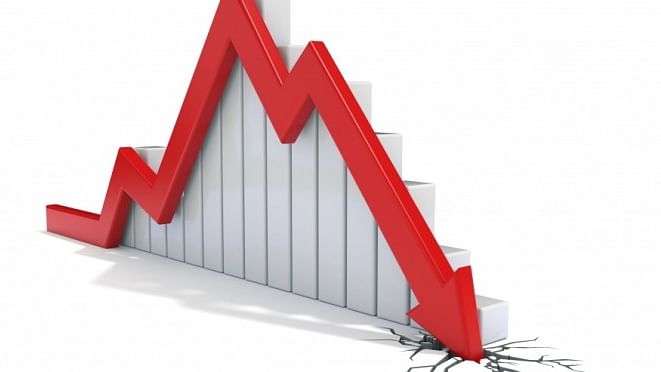Mumbai: India’s economic growth may slip to 8.2 per cent if the second wave of Covid-19 peaks in end of June, domestic rating agency Crisil warned Monday. Crisil maintained its baseline estimate of 11 per cent uptick in activity. The agency made it clear that the risks to its 11 per cent growth forecast are ‘firmly tilted downwards’, and presented two likely scenarios. If the second wave peaks in May-end, the GDP expansion will come at 9.8 per cent, and can go down to 8.2 per cent if the peaking happens in June-end, it warned.
As per official estimates, the economy contracted by 7.6 per cent in FY21, because of the national lockdown. There have been a slew of downward revisions in growth estimates after the emergence of the second wave, which has overwhelmed the healthcare apparatus and also led to localised lockdowns across India.
Crisil acknowledged the lockdowns are less restrictive right now, but the expanse of area under such measures is increasing with the ingress of the virus into the rural areas where healthcare infrastructure is weak. It said the ongoing fiscal will be a story of two halves – growth in the first one till September will be supported by a base effect despite the spread of the pandemic, while growth will be better spread in the second half stretching from October-March 2022.
In the base case of 11 per cent growth, the second wave will hit a peak in mid-May and the economy will return to its pre-pandemic level by September 2021, and the permanent loss to the economy over the medium term was estimated at 12 per cent, up from 11 per cent earlier.
The agency said two ‘gigantic challenges’ confront India, including the spread of the second wave and vaccination. On the former, it said while the second wave have been bigger spreaders globally, but added that the death rates are falling in India with the rise in infections. However, India ranks lowest among fully vaccinated populations it said, recommending that rendering jabs to half of the population by festivities in October would be good.
The rating agency maintained its 15 per cent revenue growth estimate for India Inc during the fiscal, adding that demand impact most pronounced for the services sector, followed by discretionary.
The large companies are more resilient, it said, pointing out that the operating profit margins at such players show a superior bargaining power.
It said about 10 per cent of GDP and workforce is the most vulnerable because of the reliance on contact-based services, but added that the second wave will have less severe blow on employment.
Monetary policy will remain accommodative, helped by food-led moderation of headline CPI inflation which was projected to cool down to 5 per cent in FY22. However, it called out fiscal policy to give more attention to the urban poor and the services sector, which are bearing the brunt.






































